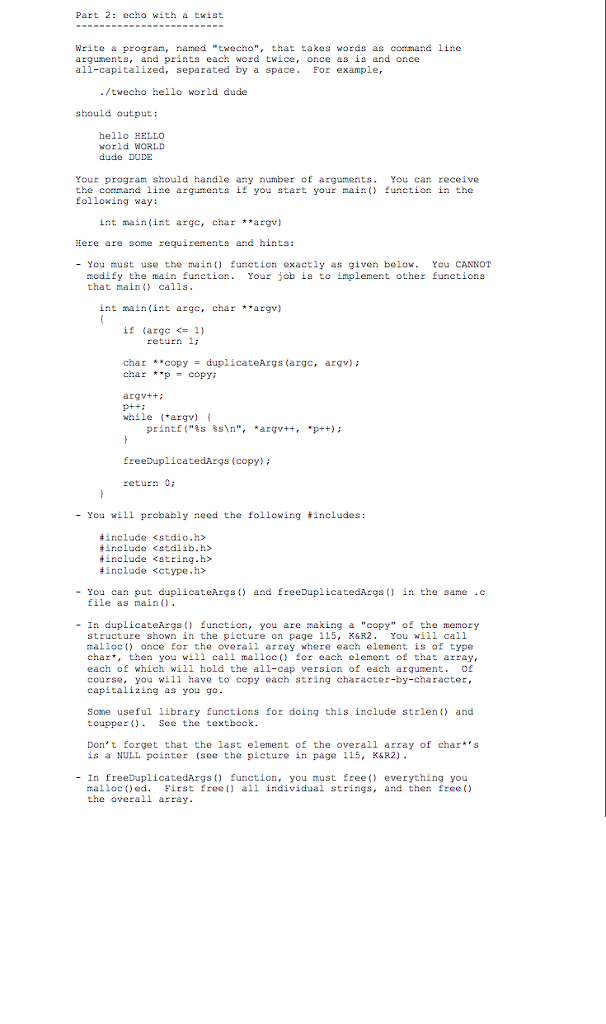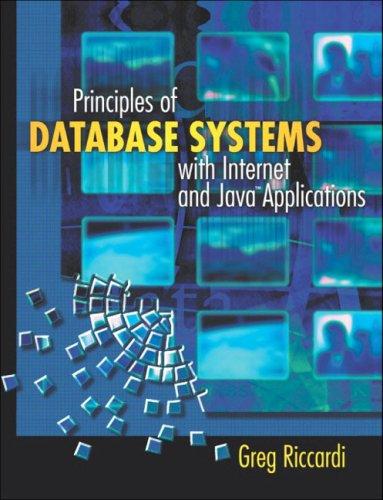Answered step by step
Verified Expert Solution
Question
1 Approved Answer
Program in C Part 2: echo with a twist Write a program, named twecho, that takes words as command line argunents, and printa each word

Program in C
Part 2: echo with a twist Write a program, named "twecho", that takes words as command line argunents, and printa each word twice, once as is and once all-capitalized, separated by a space. For example, /twecho hello world dude should output: hello HELLO world WORLD dude DUDE Your progzam should handle any number of arguments. You can receive the command line arguments if you start your main function in the Eollowing way: int main int argc, char **argv) iere are some requirements and hints: - You must use the main) funetion exactly as given below You CANNOT modify the main function Your job is to implement other functiona that main calls int main(int argc, char **argv) if (argcStep by Step Solution
There are 3 Steps involved in it
Step: 1

Get Instant Access to Expert-Tailored Solutions
See step-by-step solutions with expert insights and AI powered tools for academic success
Step: 2

Step: 3

Ace Your Homework with AI
Get the answers you need in no time with our AI-driven, step-by-step assistance
Get Started


